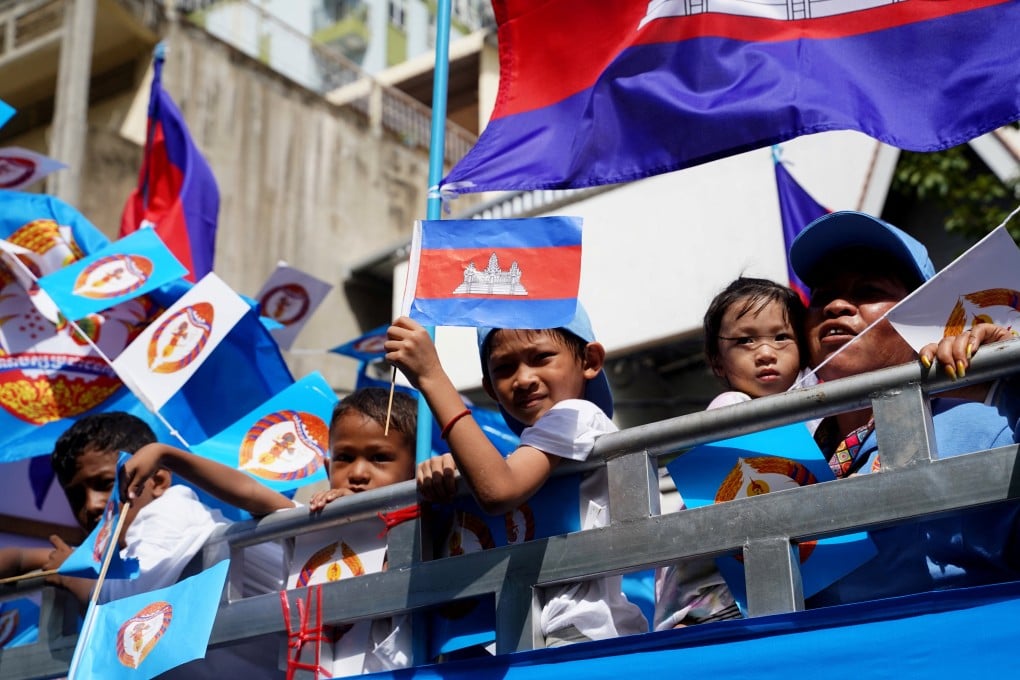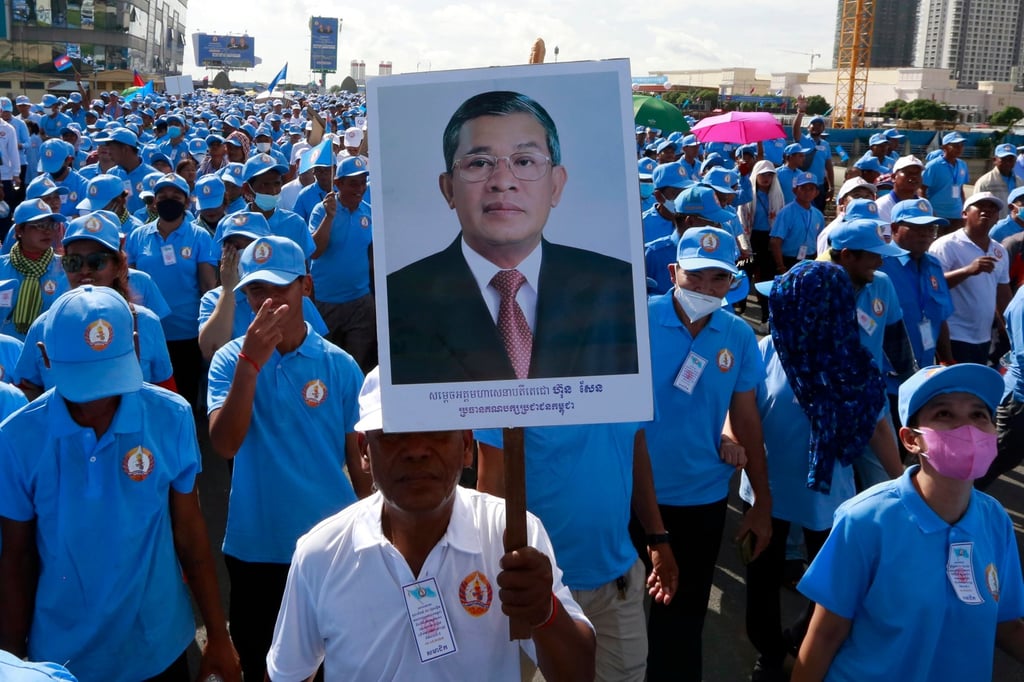Advertisement
Cambodia’s Hun Sen poised to extend 38-year rule, without his favoured platform Facebook
- Hun Sen, who has led Cambodia since 1985, is set for another electoral landslide after banning the opposition and dismantling much of the free media
- But he’ll be ‘sorely missing’ his 14 million followers on Facebook, a platform he often used to spread vitriol, after quitting over a row with Meta
Reading Time:4 minutes
Why you can trust SCMP
1

Cambodia’s Hun Sen, one of the world’s longest-serving leaders, is heading for another unanimous victory via an electoral landslide later this month, after he banned the opposition and dismantled much of the free media.
But he will also contest the polls without his favoured communication tool Facebook, after he quit the platform on which he had 14 million followers.
A former Khmer Rouge commander who switched sides towards the end of the brutal regime and has led the country since 1985, Hun Sen and his Cambodian People’s Party (CPP) will be running virtually unopposed as the opposition Candlelight Party was banned in May from taking part on a technicality.
That leaves little meaningful opposition on the ballot paper, all but guaranteeing that Hun Sen’s 38-year rule will be extended.

Despite already expunging the threats to his tenure, the 70-year-old remains in battle mode: warning rivals in politics, civil society and media of his ability to destroy them at will.
He has even scratched at social media giant Meta, which pulled one of his posts on Facebook – Cambodia’s main social media platform – for inciting violence.
Advertisement